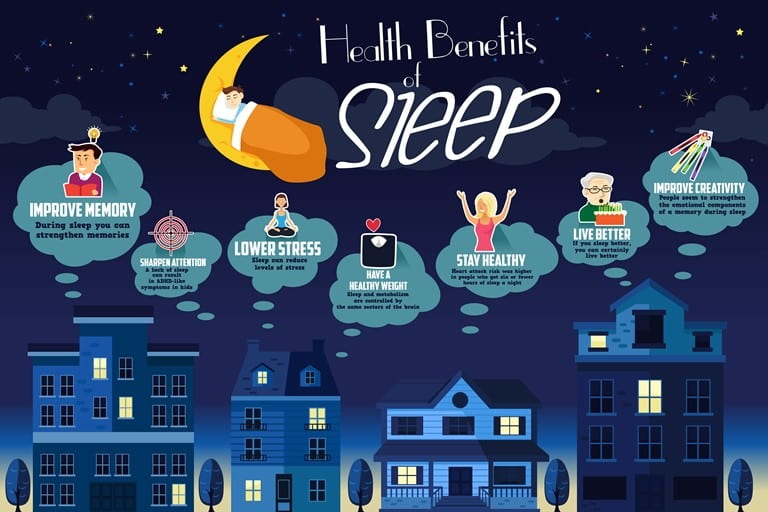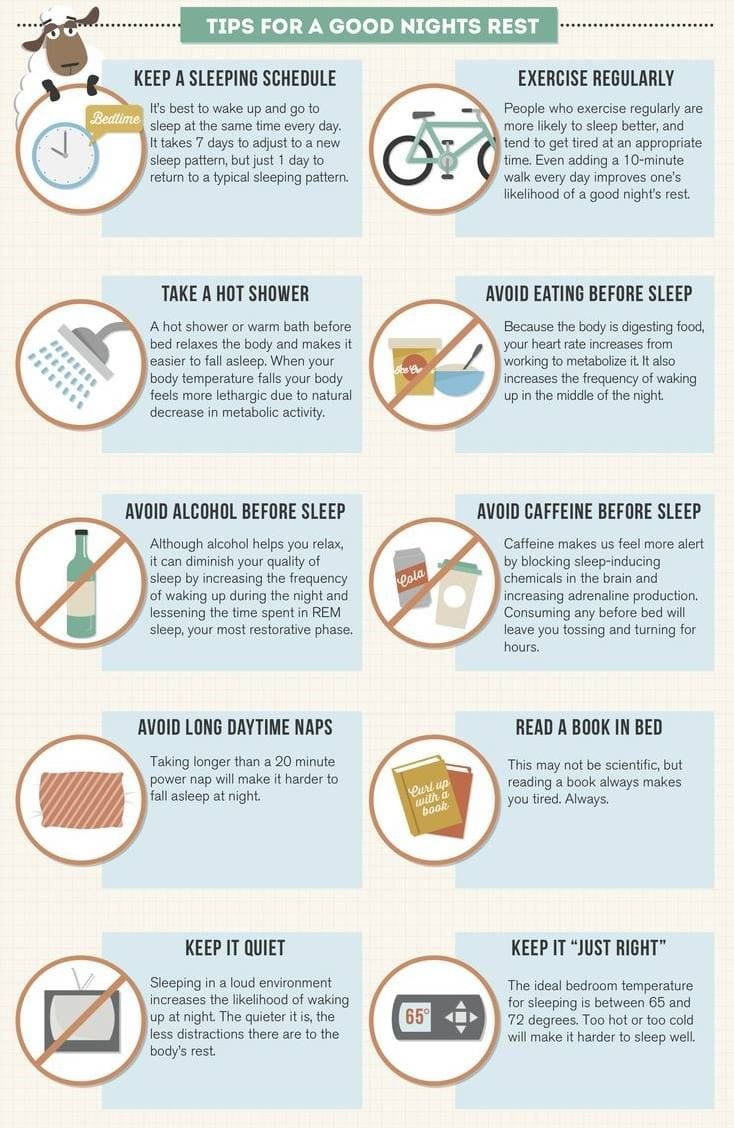You’ve heard us say it before – but we’ll say it again… sleep is super important and is a crucial support for a healthy body and mind! Let’s be real here for a second. I totally understand that it’s not always the easiest to get seven to nine hours of sleep per night, but that’s the number that the experts at the National Sleep Foundation recommend. (Yeah, alright so we know a lot about the topic of sleep and its importance, but there’s no way we could know more than the experts over there, that’s for sure! If you don’t want to take our word for it at least take theirs.) Sleep is often overlooked during times where we have a lot on our plate. Think midterms, finals, big papers, etc. Maybe this is a good opportunity to take a look at some of our previous articles on scheduling, planning, and effective time management so you can knock those assignments out of the park, or check our article on naps. Just an idea! Studies have shown that we need sleep in order to effectively retain all the knowledge we cram in our brains last minute. However, I’m sure you already know this! You’ve heard it time and time again, yet for some reason, we still overlook sleep and disregard it more often than we would like to admit. If you’re reading this at 3 AM and have been staring at a textbook or PDF’s for the last 7 hours take this as a sign to get some much-needed rest. If you’re still not convinced, let me try and throw some compelling points your way. If you join(ed) us for our Wellness Wednesday workshop you might recall:
- Proper sleep plays a huge role in supporting physical health (such as supporting the immune system and lowering the risk of certain diseases).
- Proper sleep helps support positive mental health.
- Proper sleep helps improve cognitive functioning, like memory retrieval and learning. (There’s that whole memory retrieval thing that I was telling you about!)
If you’re anything like me then you’ll find yourself saying something along the lines of this. “Yeah yeah. Okay, I get that sleep is important. But so is endless scrolling on TikTok and Instagram in bed.” Or, “what if I miss an important text?” Alright, maybe TikTok isn’t THAT important but I’ll still keep my phone by my bedside just in case. Big no! The key to proper sleep starts well before we even close our eyes. Since we’re in 2021 and it still needs to be said – it’s best to keep devices off and stored away from our bed. Think of bed as a place where we sleep and not a place where we should be scrolling social media. This might be upsetting for some (like myself, honestly), but I don’t make the rules – I’m just the messenger. Think about it though, if we condition ourselves to think of our bed as a place where we scroll social media or watch YouTube then it would make perfect sense that we might resort to that if we can’t sleep. Something as simple as a phone in bed has the potential to destroy any good sleep habits we’ve made! An effective sleep routine can do wonders and help us get the sound sleep our bodies deserve. Here’s an example of what works for me.
- First, I’ll set a reminder for a wind-down time at night and an alarm to wake up in the morning. Remember, I’m aiming for 7-9 hours! Eventually, my body will know this schedule and I won’t need any kind of alarms.
- I make sure to avoid all caffeine past 5 PM. I’m a coffee addict but I’ll switch to tea at night. I’ve found this helps tremendously.
- I’ll try my best to avoid screens ~30 minutes before bedtime. (The blue light stimulates the brain and keeps me wired. No thanks. Though, I must confess… I’m not perfect at this.)
- Putting down technology gives me a good chance to read that book I’ve started but never finished. The best part? No blue light from books! And a side note: E-Ink has no blue light. E-reader fans rejoice!
- Lastly, Before I slide under the blanket I’ll put my phone to charge on my desk across the room.
- 1. No distractions or temptation to indulge in endless scrolling on TikTok or Instagram.
- 2. When the alarm goes off in the morning I’ll have to get up and out of bed. Thus, reducing the chance of me slithering back under the covers.
If for some reason I just can’t fall asleep after 20 minutes I’ll hop out of bed and do a little more reading under a light that’s a warmer color. The more orange the light output the better it will be on your eyes at night. It’s never good to lay in bed awake for more than 20 minutes, according to the experts.
If you’re looking for a little more help in improving your snooze we run a great program called Refresh Sleep. It’s a 7-week online program filled with a whole bunch of tips and tools for better sleep. Best of all, it’s free!
If you have any other questions about sleep feel free to reach out to us in the Office of Health Promotion and Wellness! We’ll always have an answer to your questions (or point you in the right direction to find an answer). Never hesitate to contact us if you need anything.
Office of Health Promotion and Wellness
Phone: (773) 325 – 7129
Email: hpw@depaul.edu
Social Media: Instagram, Twitter, and Facebook: @healthydepaul
Do you enjoy our Wellness Wednesday articles? Subscribe to our blog for more!
Take Care of Yourself, Take Care of Others, Take Care, DePaul!





